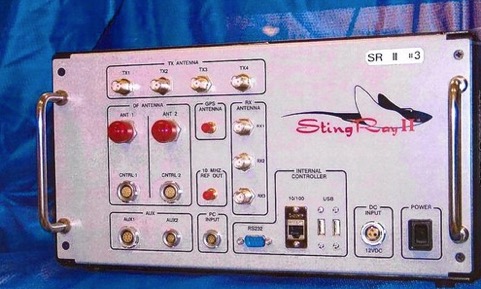FCC delegation of authority issues
Stingray: DOJ Reforms Its Rules While FCC Silence Continues Delegation of Authority Issues

Stingray is apparently a device develop by the Navy (hence the nautical name) and now used by federal and some local law enforcement agencies (apparently under strict rules from FBI) to track cell phone use. It has been granted FCC equipment authorization and one model has grant number NK73092523 (Search here for public details.) The device spoofs cellular base stations to force cell phone to transmit information and receives such information.
Today the Washington Post and Wall Street Journal both reported that the Department of Justice will be "adding more judicial and internal supervision to a practice that critics say invades privacy and has had too little oversight for years." However the new DOJ rules do not necessarily apply to state and local police departments according to WSJ.
There are 2 key FCC issues here:
- The FCC equipment authorization grant is somewhat questionable especially due to the extreme and probably illegal redaction of documents from the manufacturer in the FCC FOIA release. Note that this redaction included information in the public equipment authorization grant. Most likely the redaction was made by FBI and rubber stamped by FCC. (The good news: FBI understands FOIA somewhat better than FCC staff and at least the FOIA exemptions are clearly marked on this release, something FCC has, at best, been inconsistent about in other releases.)
- Use of such equipment by state and local law enforcement requires an FCC license or STA/waiver. Who at FCC approves such actions? and consent of cellular carriers. Has this been done?
- Use of such equipment by federal agencies also requires carrier consent and FCC/NTIA coordination. Who approves such actions?
Delegation of Authority Issues
In your blogger's paper at this month's TPRC conference he raises the issue of low FCC throughput on various spectrum policy issues, even ones favored by CTIA other than incentive auction. One root cause of this problem is probably the Commission's outdated delegations of authority under Section 5(c) of the Comm Act. Many truly noncontroversial items end up on the 8th Floor and getting delayed. These are both technical issues discussed in the TPRC paper and nontechnical ones such as this example raised by my former FCC colleague Randy May.
But many issues that would benefit from commissioner attention may not be seen by them under the present delegations. Comm. O'Reilly has voiced concern about "depriving commissioners of the right to vote". But maybe the issue is that the commissioners are voting on the wrong subset of issues, delaying obscure noncontroversial issues and not giving oversight to important issues like Stingray.
Your blogger has no view on the merits of Stingray use, but today's news from DOJ confirms that its initial use was not well thought out. Did the 5 presidential appointees at FCC add any value to this process? Were they even aware? Note that the Bush43 Administration abuses of illegal NSA surveillance of phone and Internet was - in you blogger's view - almost certainly explicitly condoned by someone in FCC. Were the 5 commissioners at that time aware of this? Did they have meaningful input?
Rationalizing and reforming the FCC's delegations of authority will both improve FCC productivity as well as help maintain the rule of law.
Comments




![Validate my RSS feed [Valid RSS]](valid-rss-rogers.png)

